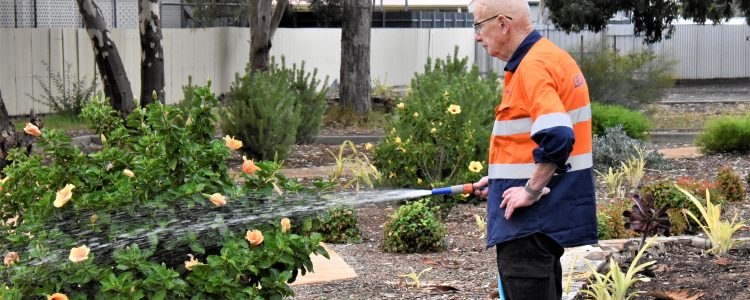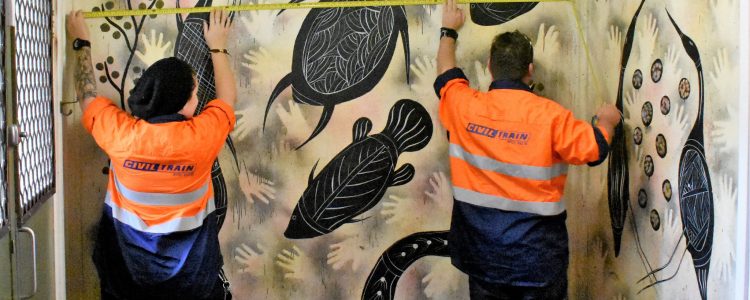Early intervention can mean a range of different things to different people. In the context of workplace rehabilitation, the best approach to early intervention is prevention of injury through implementing best practices to ensure the physical and mental health safety of everyone in the workplace.
However, in the context of the facilitated conversation service, early intervention refers to a fast and proactive approach following a work injury claim. The purpose of the service is to re-establish a positive relationship between the injured worker and their employer, and minimise the risks for both parties. Data has indicated that the quicker the communication is re-established, the better the return to work outcomes. This service can be utilised for early intervention prior to the claim being determined, as it can be an effective way to resolve the issues and implement a return to work before a decision is made.
Ideally a referral for facilitated conversation will occur within the first 6 weeks of the issues arising between the injured worker and their employer. In many situations this may be in the first 6 weeks of the injury claim, however it can also occur later in the claim where relationship or interpersonal issues occur between the injured worker and their employer during the return to work process. Where it is not possible to commence this process within the first 6 weeks of the issues arising, later referrals can be made, however it is best to discuss the specific situation with the coach to determine if facilitated conversation is the most appropriate approach.
The purpose of the facilitated conversation is to assist the worker and their employer to engage in open and honest communication with each other, clarify issues, brainstorm and discuss a range of options for resolution and then agree on an action plan together. The earlier this process is commenced, the better the opportunity to gain a positive outcome for everyone involved. Where issues have been ongoing for 6 months or more, it may be more appropriate for the participants to be provided with a more formal mediation service to assist them to move forward together.

At Adaptive Workplace Solutions we frequently organise work placements for clients as part of their return to work and rehabilitation plan. Work placements are vital for injured workers who are unable to return to their place of employment to re-establish positive work habits, gradually increase their duties and develop new skills.
Why someone may need a work placement
Generally after a work injury, the injured worker returns to their place of employment quickly on a graduated return to work plan starting with light duties. However, in some cases, there are no light duties available (due to the size of the employer, the nature of the work etc) and a person may need a suitable work placement for a short period of time in order to build up their capacity and strength before returning to their pre-injury role.
In other cases, a person’s specific injury may prevent them returning to either their workplace or their role in which case they would be working towards a new employment goal. This pathway may include some training and will almost always include some on the job experience, building vital skills through a voluntary work placement.
Benefits to the Worker
- Retain or Regain positive work habits. If people are out of work for a prolonged period it can be hard to get back into a good routine for work. It is better for people to keep up their routine through attending a workplace regularly rather than have an extended period off work and then try and rebuild these habits.
- Social component of work. It can be very isolating for people to be off work through a work injury. Work provides valuable opportunity for socialising and being part of a community.
- Mental Health. Purposeful and valued activity at work promotes positive mental health.
- Physical conditioning. Attending work is an important part of people’s physical recovery. A work placement provides an opportunity for a graduated plan, where tasks and time at work can be increased gradually, allowing the person to regain their strength, stamina and ability to engage in everyday work-related tasks. It is important that all medical restrictions are taken into consideration and that the person only engages in duties within their capabilities, allowing them to build up steadily.
- Skill Building. When a goal of new employment is set, a work placement provides a great opportunity to build skills for the new role and develop confidence.
- Experience and Pathway to New Employment. When applying for new employment, most employers look for people with experience. A work placement provides an opportunity to gain experience in a new role, and potentially even a glowing reference. This will put them in good stead when applying for new jobs.
Benefits to the Host Employer
- Additional team member at no extra cost. Who couldn’t benefit from a free extra set of hands during busy times? A work placement is completely unpaid, so the host employer benefits from the extra staff member and all of the experience, knowledge and skills they bring for the duration they are there.
- Insurance is covered. We understand that many potential employers have concerns about the implications for their business if the person was to make their injury worse, or re-injure themselves while on placement. Return to Work SA cover the insurance for all of these potential situations, as well as any damage that the worker on placement may accidentally cause. This gives peace of mind that there is no risk to taking someone on for a work placement.
- Promoting a diverse workplace. Having someone on work placement can add to the diversity of your workplace culture.
- Contributing to the community. It can give business owners and host employers a great feeling to know that they have helped someone to get back on their feet by assisting them with important steps in their rehabilitation.
- Incentives to offer paid employment. Sometimes host employers are so impressed with the person there on placement that they want to offer them a paid position. This is not an expectation during a work placement, but it is a great bonus for all parties if it is the right fit. In this case the placement provides an opportunity to test out an employee to see if they are a good fit before offering employment. Return to Work SA provide the RISE scheme, a financial incentive for employers to take someone on after a work injury.
How does it work?
Generally, we will contact relevant workplaces to arrange a work placement that is a good fit for that individual client and their needs. At that point, when a host employer expresses interest, we set up a meeting involving the host employer, the client and an Adaptive Workplace Solutions staff member. This meeting gives the host employer the chance to meet with the client and see if they will be a good fit. We can also discuss practical considerations including time component, any medical restrictions that need to be followed etc. From there a placement agreement is drawn up and signed by all parties and the person can begin!
We frequently require host employers across the whole Adelaide and Hills area to support clients with work placements in a range of industries. If you think that your workplace may be interested in taking someone on for a work placement or have light work duties frequently available, we would love to hear from you. Give us a call today and we can discuss how you can get involved!

While engaging in a reskilling work placement with Civil Train SA at the Chinese Association at Findon, some of our Return to Work participants made an amazing discovery!
On removing some temporary boards in the front foyer of the building, they uncovered original artwork done by famous Indigenous artist, Les Huddleston in 1975 when he was just 16 years old.
Since then they have been undertaking research and attempting to contact the artist and local art galleries to find out the best way to display this newly discovered artwork.

